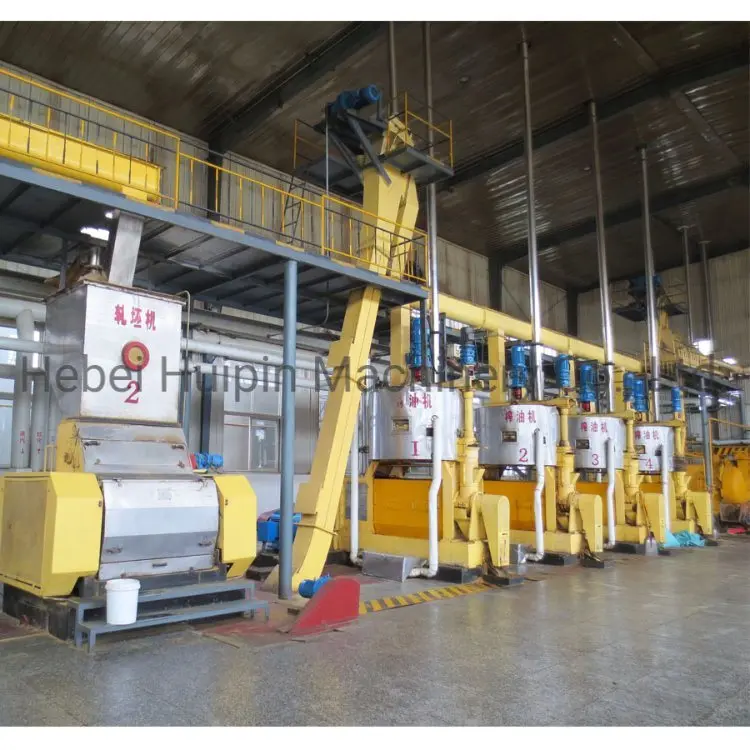Aug . 14, 2024 08:33 Back to list
Exploring the Benefits of Multi-Seed Oil Expeller Production in Modern Factories Today
The Rise of Multiseed Oil Expeller Factories A Sustainable Approach
In recent years, the oil extraction industry has seen a significant shift towards more sustainable and efficient practices. One of the most notable advancements in this sector is the emergence of multiseed oil expeller factories. These facilities, which specialize in extracting oil from a diverse range of seeds, have become increasingly popular due to their versatility, environmental benefits, and economic potential.
Understanding Multiseed Oil Extraction
Traditionally, oil extraction has often revolved around single types of seeds, such as soybean or sunflower. However, multiseed oil expellers utilize a combination of various seeds—such as mustard, flaxseed, sesame, and others—to produce high-quality, nutritious oils. This approach not only maximizes the use of available raw materials but also helps in minimizing waste. By capitalizing on the unique fatty acid profiles of different seeds, manufacturers can offer a variety of health benefits to consumers.
Economic Viability
The multiseed oil expeller factory model presents significant economic advantages. By diversifying their seed sources, these factories can mitigate risks associated with market fluctuations and crop failures. When one seed variety is in short supply or becomes costly, manufacturers can switch to more readily available alternatives. This flexibility not only secures their production line but also stabilizes costs, ultimately benefiting consumers with competitive pricing.
Moreover, multiseed oil expeller factories can cater to various markets, ranging from food and cooking oils to cosmetics and industrial applications
. This broad spectrum of potential products increases the factory's revenue streams and fosters economic resilience.Environmental Sustainability
Another compelling aspect of multiseed oil expeller factories is their commitment to sustainability. Traditional oil extraction methods can be resource-intensive, requiring large amounts of water, energy, and land. In contrast, multiseed oil extraction promotes the use of less common seeds that may require fewer resources to grow. Many of these seeds can be cultivated in harsher climates or marginal lands, enriching local biodiversity and encouraging sustainable farming practices.
multi seed oil expeller factory

Additionally, by producing oils from byproducts of other agricultural processes—such as leftover seeds from food production—these factories further minimize waste and promote the circular economy. This not only benefits the environment but also supports local farmers by giving them an additional source of income.
Meeting Consumer Demand
The growing consumer awareness around health, nutrition, and sustainability has fueled demand for diverse and nutritious oil options. As more people seek healthier alternatives to traditional cooking oils, multiseed oils are stepping into the spotlight. They offer a broader range of nutrients and flavors, appealing to health-conscious individuals and gourmet chefs alike.
With the rise of the health and wellness trend, multiseed oils can also be marketed as functional foods. For instance, oils that are rich in omega fatty acids, antioxidants, and vitamins are now sought after for their potential health benefits, such as improved heart health and reduced inflammation.
Challenges Ahead
Despite their advantages, multiseed oil expeller factories face challenges. Ensuring a consistent supply of high-quality seeds, maintaining processing efficiency, and competing with established single-seed oil brands are notable hurdles. Nevertheless, with advancements in technology and growing interest in sustainable practices, the future looks promising for multiseed oil expeller factories.
Conclusion
In summary, multiseed oil expeller factories are emblematic of an industry moving towards greater sustainability, efficiency, and consumer awareness. By utilizing a diverse range of seeds, they not only enhance the nutritional profiles of their products but also contribute significantly to environmental sustainability and economic resilience. As the demand for healthy and sustainable food options continues to grow, these innovative factories are likely to play a pivotal role in shaping the future of the oil extraction industry.
-
Efficient Black Seed Oil Expeller & Multi-Seed Oil Press
NewsAug.19,2025
-
HP 120 Model Cold Oil Press-Hebei Huipin Machinery|Energy Efficiency, Multi-Functionality
NewsAug.18,2025
-
HP 120 Model Cold Oil Press-Hebei Huipin Machinery|Oil Extraction, Multi-Functional
NewsAug.18,2025
-
HP 120 Cold Oil Press - Hebei Huipin | Automation & Efficiency
NewsAug.18,2025
-
Safflower Oil Press Service: Efficient & Quality Extraction
NewsAug.18,2025
-
HP 120 Cold Oil Press-Hebei Huipin Machinery|Oil Extraction, High Efficiency
NewsAug.17,2025
